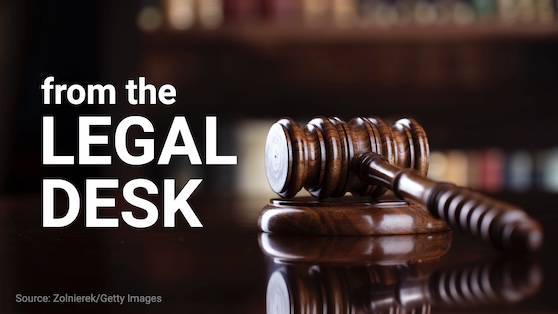
Features
Articles
Legal Desk
Proper invoices and subcontractors – Legal Desk, February 2020
April 30, 2020 | By Dan Leduc

As each province moves along towards their respective prompt payment regimes with introductions to new legislation or amendments to current legislation, we thought it best to do a comparison as to whether or not a “proper invoice” would be required from a subcontractor.
To put that comment in context, the typical prompt payment regime introduces a series of mandatory milestone dates that almost exclusively start with the delivery of what is characterized and defined as a “proper invoice” to the owner, so that Day 1 in a series of stipulated milestone steps begins with the transmittal of the “proper invoice” from the contractor to the owner.
When comparing the current or proposed legislation from various provinces, as they currently stand, the majority of those jurisdictions mandate that a “proper invoice” will come from a contractor to an owner, and not from a subcontractor to a contractor. For example, the current Ontario legislation provides as follows:
Definition, “proper invoice”
6.1 In this Part,
“proper invoice” means a written bill or other request for payment for services or materials in respect of an improvement under a contract, if it contains the following information and, subject to subsection 6.3 (2), meets any other requirements that the contract specifies:
- The contractor’s name and address.
- The date of the proper invoice and the period during which the services or materials were supplied.
- Information identifying the authority, whether in the contract or otherwise, under which the services or materials were supplied.
- A description, including quantity where appropriate, of the services or materials that were supplied.
- The amount payable for the services or materials that were supplied, and the payment terms.
- The name, title, telephone number and mailing address of the person to whom payment is to be sent.
- Any other information that may be prescribed. 2017, c. 24, s. 7.
Same
(3) For greater certainty, subsection (2) has no application to a provision in a contract that provides for the certification of a payment certifier or the owner’s approval after a proper invoice is given. 2017, c. 24, s. 7.
Exception
(4) Subsection (2) does not apply to a provision in a contract that provides for the testing and commissioning of the improvement or of services or materials supplied under the contract. 2017, c. 24, s. 7.
In addition, we know that the definition of “contract” and “contractor”, highlighted above, includes the following:
“contract” means the contract between the owner and the contractor, and includes any amendment to that contract; (“contrat”)
“contractor” means a person contracting with or employed directly by the owner or an agent of the owner to supply services or materials to an improvement and includes a joint venture entered into for the purposes of an improvement or improvements; (“entrepreneur”)
So as an electrical contractor performing work on a project in Ontario, unless you are contracting directly with the owner, you will not find yourself within the requirements of submitting a “proper invoice”.
The Saskatchewan Builders Lien Act, whose prompt payment regime was reflected in The Builders’ Lien (Prompt Payment) Amendment Act, 2018 (Saskatchewan), which received Royal Assent on May 15, 2019 but has not been proclaimed in force as of yet, includes almost identical language. Therefore, an electrical contractor in Saskatchewan will not be required to submit a “proper invoice” in conformance with Saskatchewan’s Builders Lien Act.
Proposed amendments to the Nova Scotia Builders Lien Act, almost identical to the wording used in Ontario and Saskatchewan, was introduced on March 15, 2019 and received Royal Assent on April 12, 2019. It is also awaiting proclamation.
That said, if you subcontract with anyone other than the owner, and most likely with a general contractor, and your subcontract incorporates by reference the prime contract, you may nonetheless be required to follow the requirements of a “proper invoice,” but you would be compelled contractually and not legislatively as a result.
By comparison, the definition of “proper invoice” in Manitoba’s Bill 218, The Prompt Payments in the Construction Industry Act, includes subcontractors:
“proper invoice” means a written invoice, bill or other request for payment for work performed under a contract or subcontract, if it contains the following information and meets any other requirements specified in the contract or subcontract.
As you can see, the proposed definition of “proper invoice” under Manitoba Bill 218 extends to subcontractors and therefore, as an electrical contractor performing work on a project in Manitoba, you would be bound to follow the requirements for “proper invoices” under that proposed legislation when and if enacted.
As each province moves along in its respective introduction and implementation of prompt payment and adjudication regimes, it is interesting to understand perhaps why some provinces excluded subcontractors from the definition of “proper invoice,” while others extend the requirement to subcontractors.
![]()
Dan Leduc is a partner at the law firm of Norton Rose Fulbright LLP, practising exclusively in the field of construction law. He may be reached at dan.leduc@nortonrosefulbright.com.
Print this page